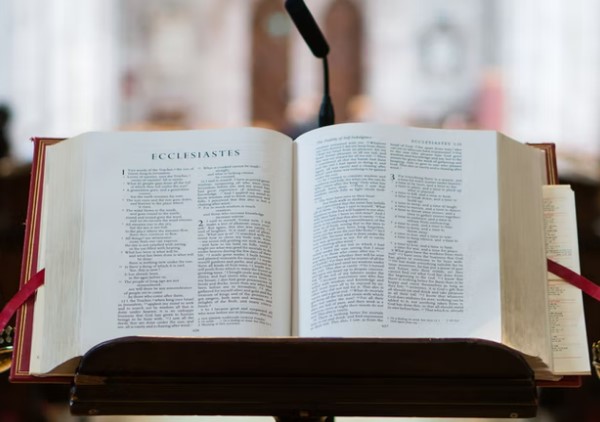Some Seven Sisters have been offering a Holy Hour for many years, while for others, this may be the first time they have spent a full hour in prayer. Regardless of your spiritual background, the following characteristics set this hour apart as a gift offered in the spirit of the Seven Sisters Apostolate:

1) Offer this hour solely for the intentions of the priest.
If other personal intercessions weigh heavily, it is suggested that the Seven Sister prays through these other intentions either before or after the hour. In God’s marvelous economy, this challenge can in itself be offered as additional sacrifice for the benefit of the priest. Be assured that eventually you will form the discipline required for this special work of prayer to joyfully offer this entire hour for the priest.

2) Pray for the priest’s deepening devotion to Mary.
Pray for the priest’s deepening devotion to Mary each time you offer this Holy Hour for him. With Our Lady’s support, the Church and her priests will be strengthened.

3) Resolve to honor the commitment to a Holy Hour.
Resolve to honor the commitment to a Holy Hour on your designated day of the week or secure a sub if you are unable to offer the Hour yourself, keeping true to your group’s prayer commitment of at least one Holy Hour every day for the pastor. As is true of most prayer effort, each week may present challenges. Let us make our ‘yes’ mean ‘yes’. God’s graces are sufficient.
Suggestions to Aid Prayer
Entering into Prayer
- Turn off your cell phone as you enter the chapel.
- Ask the Holy Spirit to guide your prayer for that particular hour. When we ask, seek, knock, the door is opened. Enter unhurried—there is a whole hour ahead!
- Invoke the help of our patrons, the Madonna of the Grapes, St. John Vianney and St. Margaret Clitherow.
- Be patient with yourself. Offering an entire hour for one person every week for one year will necessitate practice and steadfastness. Think of yourself as a student in the school of intercession; let the Holy Spirit be your teacher. If conflicting thoughts and concerns distract, thank God for the awareness of them and move right back into prayer for the priest. As St. Teresa of Avila advised in reference to distractions, “The ships will pass and one may watch the ships passing by, but do not invite them into the harbor to rest.”
Finding the Rhythm of Prayer
The actual structure of a Holy Hour will be unique to each Seven Sister. Some may organize the prayer time in a similar fashion each week. Others may tend toward variation as the hour proceeds. Both are proper ways to commit to the hour. Below are some suggestions of how the prayer time might be spent:
- Pray the Novena to the Sacred Heart of Jesus. This was a favorite prayer of St. Padre Pio, which he used to offer prayers for all of the daily intentions he was given. The physical, emotional/social, and spiritual needs of the priest can be held up at various points in the prayer.
- Pray with the Mass readings for the week. As you meditate on these readings, pray that the priest will live and preach the truths contained in them.
- Pray the Liturgy of the Hours. The priest has made a commitment to pray faithfully the prayer of the Church known as the Liturgy of the Hours. If desired, morning prayer, midday prayer, evening prayer, or night prayer from the Liturgy of the Hours could be prayed as an offering for the priest’s faithfulness to this commitment.
- Pray the Rosary. This time-honored devotion to Our Lady is upheld by the Church as one of our greatest treasures. It can be a powerful way to pray for the priest’s deepening devotion to Our Lady and place him under her protection.
- Consider the Pastor’s namesake and other particular intercessors. What is his baptismal/confirmation/religious name? Does he hold a special devotion to a particular saint? Who is the patron of your parish?
- Use other personal devotions such as litanies (Litany of Loreto), chaplets (Chaplet of Divine Mercy), novenas, or other written prayers, etc. as the Holy Spirit leads you.
- Follow liturgical themes for the day, month, season or year. Consider the day of the week and month of your Holy Hour; the Church designates special devotional themes for each weekday and month. The liturgical season (Advent, Lent, Easter, etc.) may also shape the themes and tenor of your prayers for the priest.
- Pray for specific graces each week or each month. Examples are: sanctity, fidelity, perseverance, mercy, or other virtues; the gifts of the Holy Spirit; living of the beatitudes; growth in the sacramental life.
- Embrace periods of silence if your prayer time leads you to this. Intercessory prayer does not mean we must constantly be speaking to God; we must also let him speak to us as he desires. As St. Teresa of Calcutta reminds us, “In the silence of the heart God speaks.”
- Always remain open to the Holy Spirit’s intervention in your prayer. If you are drawn to a particular way of prayer that differs from your normal routine, you should freely follow it. Never feel that you must “get through” certain prayers in order to be “successful” in your Holy Hour. Union with God is always the most powerful form of intercession, however He desires to give it.
